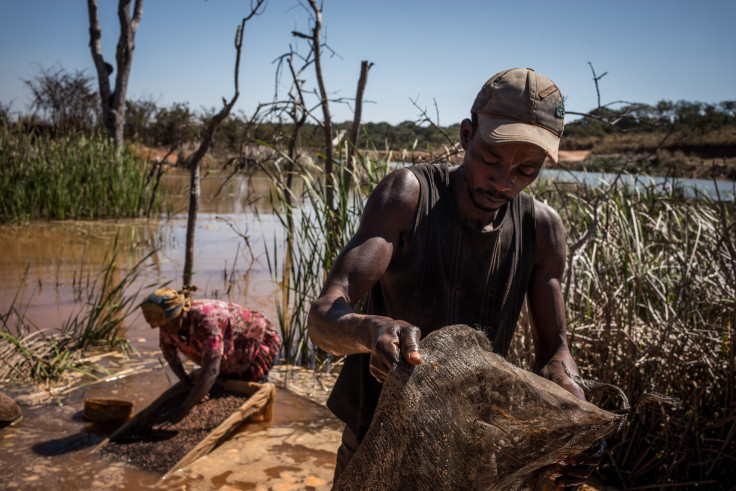Amnesty Links Large Multinationals, Including Apple, Samsung And Sony, To Suppliers Using Child Labor

Lithium-ion batteries in your smartphone could have cobalt that was mined in dangerous conditions by children as young as seven, according to a report. The report, released Monday, also accused technology and electronics companies like Apple, Samsung and Sony of “failing to do basic checks to ensure that cobalt mined by child laborers has not been used in their products.”
Titled “This is What We Die For: Human Rights Abuses in the Democratic Republic of the Congo Power the Global Trade in Cobalt,” the report was published by Amnesty International and Africa Resource Watch (Afrewatch), an African non-profit organization that promotes equal access to natural resources of land, water and minerals in Africa.
Cobalt is used in lithium-ion batteries that are standard in most handheld devices today, such as smartphones and tablets, and also in electric vehicles. The Democratic Republic of Congo (DRC) alone produces about half the world’s cobalt, according to the report.
The investigation by Amnesty found that local traders bought cobalt from areas where child labor was commonplace, and the mineral was then sold to Congo Dongfang Mining, a DRC unit of Chinese mineral giant Zhejiang Huayou Cobalt. The Chinese company processed the cobalt before selling it to three battery component manufacturers in China and South Korea, who in turn sold the components to more easily recognizable names such as Apple, Microsoft, Samsung, Sony, Daimler and Volkswagen.
“Millions of people enjoy the benefits of new technologies but rarely ask how they are made. It is high time the big brands took some responsibility for the mining of the raw materials that make their lucrative products,” Mark Dummett, business and human rights researcher at Amnesty International, said, adding: “The glamorous shop displays and marketing of state of the art technologies are a stark contrast to the children carrying bags of rocks, and miners in narrow manmade tunnels risking permanent lung damage.”
The report found children working in the cobalt mines without basic protective equipment, such as gloves, work clothes or facemasks to protect them from lung or skin disease. They would carry heavy loads for up to 12 hours a day to earn between $1 and $2. Approximately 40,000 children worked in mines across southern DRC in 2014, many of them mining cobalt, the report said, citing Unicef.
Amnesty contacted 16 multinational companies that were listed as customers of the three Chinese and South Korean battery component makers. While the companies all gave different answers, none of them could “provide enough details to independently verify where the cobalt in their products came from,” the report said.
“It is a major paradox of the digital era that some of the world’s richest, most innovative companies are able to market incredibly sophisticated devices without being required to show where they source raw materials for their components,” Emmanuel Umpula, executive director of Afrewatch, said.
As of now, there is no regulation of the global cobalt market, according to the report. Cobalt does not fall under existing “conflict minerals” rules in the U.S., which cover gold, coltan/tantalum, tin and tungsten mined in DRC.
© Copyright IBTimes 2025. All rights reserved.





















